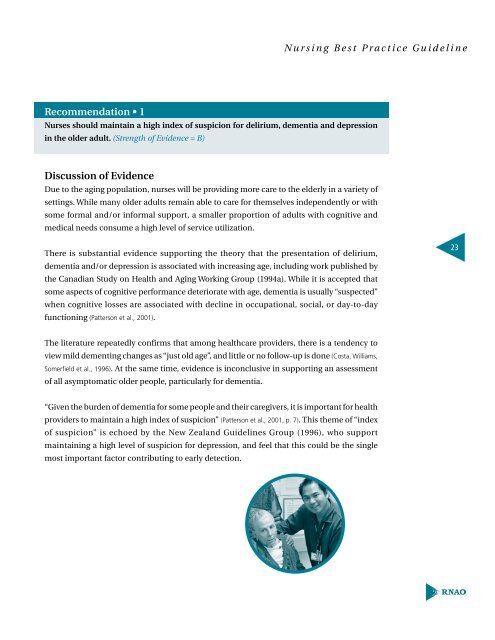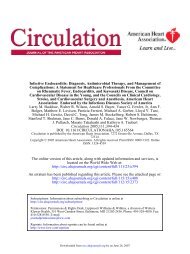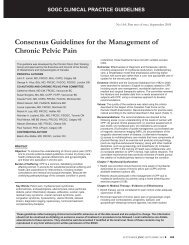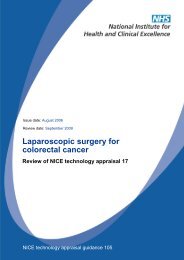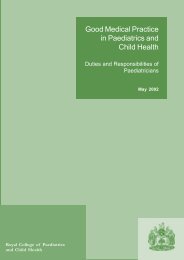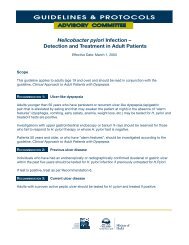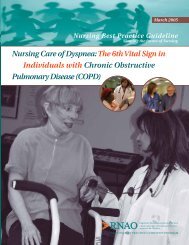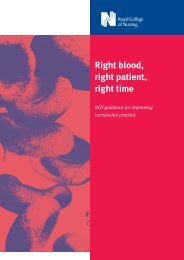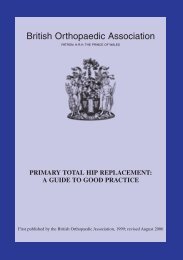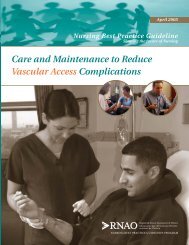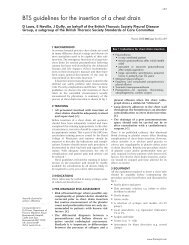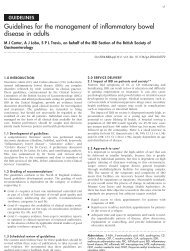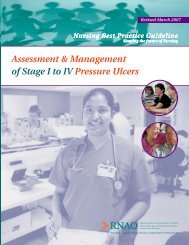Screening for Delirium, Dementia and Depression in Older Adults
Screening for Delirium, Dementia and Depression in Older Adults
Screening for Delirium, Dementia and Depression in Older Adults
- No tags were found...
You also want an ePaper? Increase the reach of your titles
YUMPU automatically turns print PDFs into web optimized ePapers that Google loves.
Nurs<strong>in</strong>g Best Practice Guidel<strong>in</strong>eRecommendation • 1Nurses should ma<strong>in</strong>ta<strong>in</strong> a high <strong>in</strong>dex of suspicion <strong>for</strong> delirium, dementia <strong>and</strong> depression<strong>in</strong> the older adult. (Strength of Evidence = B)Discussion of EvidenceDue to the ag<strong>in</strong>g population, nurses will be provid<strong>in</strong>g more care to the elderly <strong>in</strong> a variety ofsett<strong>in</strong>gs. While many older adults rema<strong>in</strong> able to care <strong>for</strong> themselves <strong>in</strong>dependently or withsome <strong>for</strong>mal <strong>and</strong>/or <strong>in</strong><strong>for</strong>mal support, a smaller proportion of adults with cognitive <strong>and</strong>medical needs consume a high level of service utilization.There is substantial evidence support<strong>in</strong>g the theory that the presentation of delirium,dementia <strong>and</strong>/or depression is associated with <strong>in</strong>creas<strong>in</strong>g age, <strong>in</strong>clud<strong>in</strong>g work published bythe Canadian Study on Health <strong>and</strong> Ag<strong>in</strong>g Work<strong>in</strong>g Group (1994a). While it is accepted thatsome aspects of cognitive per<strong>for</strong>mance deteriorate with age, dementia is usually “suspected”when cognitive losses are associated with decl<strong>in</strong>e <strong>in</strong> occupational, social, or day-to-dayfunction<strong>in</strong>g (Patterson et al., 2001).23The literature repeatedly confirms that among healthcare providers, there is a tendency toview mild dement<strong>in</strong>g changes as “just old age”, <strong>and</strong> little or no follow-up is done (Costa, Williams,Somerfield et al., 1996). At the same time, evidence is <strong>in</strong>conclusive <strong>in</strong> support<strong>in</strong>g an assessmentof all asymptomatic older people, particularly <strong>for</strong> dementia.“Given the burden of dementia <strong>for</strong> some people <strong>and</strong> their caregivers, it is important <strong>for</strong> healthproviders to ma<strong>in</strong>ta<strong>in</strong> a high <strong>in</strong>dex of suspicion” (Patterson et al., 2001, p. 7). This theme of “<strong>in</strong>dexof suspicion” is echoed by the New Zeal<strong>and</strong> Guidel<strong>in</strong>es Group (1996), who supportma<strong>in</strong>ta<strong>in</strong><strong>in</strong>g a high level of suspicion <strong>for</strong> depression, <strong>and</strong> feel that this could be the s<strong>in</strong>glemost important factor contribut<strong>in</strong>g to early detection.


